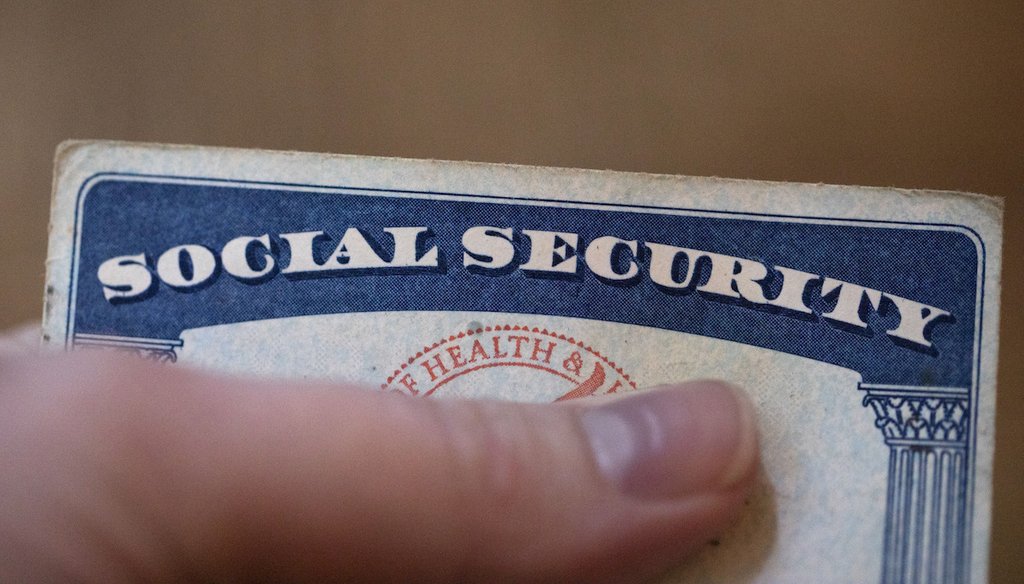Stand up for the facts!
Our only agenda is to publish the truth so you can be an informed participant in democracy.
We need your help.
I would like to contribute

(AP)
If the government shuts down, will Social Security checks go out? That’s the plan.
Current funding for the federal government expires Sept. 30. If lawmakers and the president cannot agree on legislation to extend federal spending, most federal agencies will shut down until both chambers of Congress can pass and President Joe Biden can sign new spending legislation.
For now, the key holdup is the House, where Speaker Kevin McCarthy, R-Calif., is trying, so far unsuccessfully, to get his conference’s conservative and moderate wings to support a funding bill the Senate can approve and Biden can sign.
Much government activity would stop during a shutdown, and the fate of Social Security checks — a lifeline for many older Americans — is top of mind for many people.
In a Sep. 24 post on X, Rep. Melanie Stansbury, D-N.M., wrote, "If the government shuts down, millions of Americans will be affected. Social security checks won’t go out. Federal workers won’t get paid. Active-duty military members won’t get paid either. The GOP needs to stop playing with people’s lives."
Sign up for PolitiFact texts
Although parts of Stansbury’s post were correct — a government shutdown would mean that federal workers and active-duty servicemembers aren’t paid until the government reopens — the prediction about Social Security checks being halted does not align with past practices. (Stansbury later deleted the post.)
Social Security is a mandatory program supported by a trust fund, so the money to pay Social Security benefits is ready to be spent without Congress’ formal approval. However, the Social Security Administration employees who cut the checks and stuff the envelopes are paid through appropriated funds, meaning they would be at risk of being furloughed during a shutdown.
Looking back at the 20 government shutdowns that have taken place since 1976, procedures were flexible enough to let federal workers remain on the job to carry out core Social Security functions, including sending benefit checks. This means the checks have always gone out in the past.
In an Aug. 14 memo, the Social Security Administration reiterated that, if a shutdown hits, it will keep a fraction of its workforce on duty to send out checks and handle other urgent tasks.
The agency said that of its nearly 62,000 employees, all but about 8,500 will continue to work through a shutdown (though, like other federal workers, they would not get paid until the shutdown is over).
"We will continue activities critical to our direct-service operations and those needed to ensure accurate and timely payment of benefits," the memo said. "We will cease activities not directly related to the accurate and timely payment of benefits or not critical to our direct-service operations."
Other duties that will keep operating during the shutdown include the processing of benefit applications, appeals, certain types of record-keeping and the issuing of original and replacement Social Security cards.
Duties that are slated to stop during a shutdown include verification of benefits, third-party information inquiries, replacement Medicare cards and the rectification of overpayments.
Our Sources
Social Security Administration, letter from Chad Poist, deputy commissioner for budget, finance, and management, Aug. 14, 2023
Congressional Research Service, "Federal Funding Gaps: A Brief Overview," Sept. 7, 2023
CNN, "Social Security payments will continue if the government shuts down," Sept. 26, 2023
Kiplinger.com, "How Social Security Would Be Affected By A Government Shutdown," Sept. 25, 2023
PolitiFact, "Here we go again: what to know about government shutdowns," Sept. 20, 2023








































